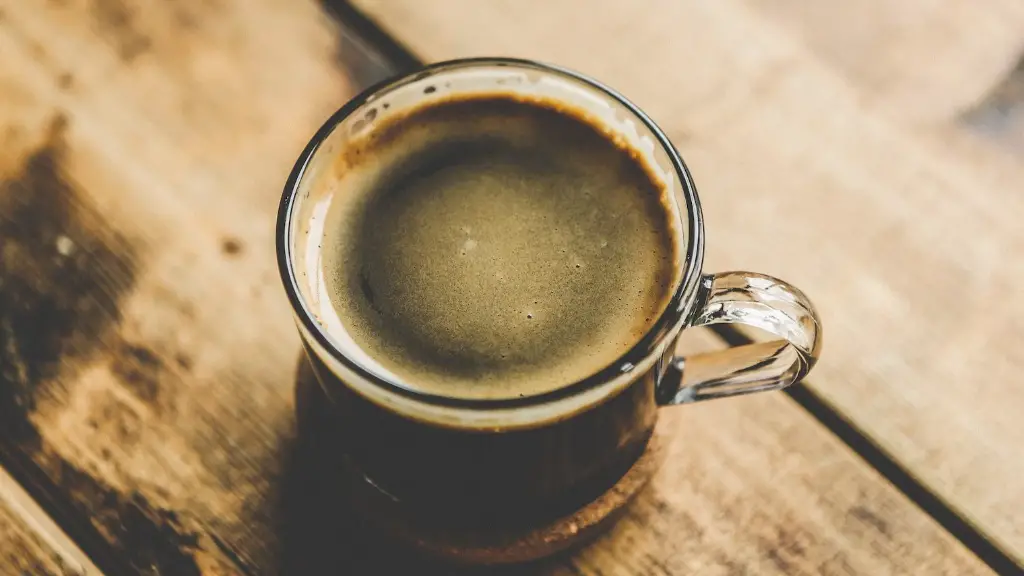The idea of having coffee after a tooth filling may have you uncertain and confused. The effects that coffee has on our teeth and specifically on dental fillings can leave us in a very perplexing position. So when can you actually drink coffee after a tooth filling?
It is advisable for people with dental fillings or crowns to wait about 24 hours before drinking a cup of coffee. Depending on the type of dental material used, particularly if composite resin is a constituent, it is essential to wait for 24 hours before getting in contact with caffeine and other soured drinks. It is thought that the acidity of these drinks can negatively interact with the dental filling.
First of all, during a dental filling process, your dentist will need to engrain and scribble the dental material on a tooth to ensure a better bond. The polymers and the catalyst which constitute the resin-based dental filling take a while to set and adjust. Drinking coffee soon after the dental filling application can weaken the molecular structure of the material, leading to further sensitivity and tooth fractures.
The chemical interaction that goes on between the dental material and coffee can also cause discoloration and chemical intrusion of the composite material. This can lessen its strength and strength, again leading to a poorer performance. Dental fillings which have an established record of successful use in dentistry for decades often includes some silver alloy content or gold; both of these are not that susceptible to the changes caused by coffee.
Regardless, waiting for 24 hours after the dental filling is the best option to prevent any potential dental issue that may arise. It is further advisable to avoid getting in contact with very hot coffee, as it can cause more damage to your fresh dental filling.
Consumption of Sugar
Once you wait for 24 hours and your dentist advises that you can drink coffee, it is critical for your newly filled teeth to be taken with proper precautions; coffee consumption should be moderate and within a safe and healthy range. Be wary of adding too much sugar in your coffee as it can accelerate the decaying process of your teeth, leading to potential risks in the long haul.
Cardiovascular diseases and tooth decay can be triggered by excess sugar consumption and can also lead to dental problems such as enamel wear and contraction of gingivitis. Your dentist may encourage you to opt for artificial sweeteners instead; however, some of them can also cause damage to your teeth. If you are looking forward to sweeten your coffee, opt for natural sweetening agents such as stevia or date syrup.
Tea is a healthier alternative to coffee; green tea is jam-packed with antioxidants and some researches suggests that green tea actually helps to strengthen the teeth and provide some protection if consumed in accordance with the recommended daily requirement. Green tea can also reduce the risk of gingivitis and other dental problems.
Using the Right Brush
In order for your dental filling to last for long, it is also imperative to brush your teeth properly following all your meals and also include flossing in your daily routine.It is best to opt for a brush with small bristles, as it can provide better access and better depth for brushing around your dental fillings. Small rounds of circular motions around your fillings should suffice. To make sure that your teeth get any plaque or debris, use the back and forth technique to clean the teeth.
Rinsing with lukewarm water can help to get rid of any residue; make sure not to use too hot water, as it can harm the fillings as well. It is also essential to stick to non-abrasive toothpastes; as they can help to polish your teeth without causing any severe damage to the dental fillings.
Visiting the Dentist
Although the effects of coffee on dental fillings in the short run are very minor and often invisible, it is still important to visit your dentist on a regular basis to make sure that your fillings are intact and not weakening. It takes time for the negative affects of coffee to experience a lasting impact and it is only through a dental check up that you can be aware of any unfortunate consequences.
It is always recommended to keep an eye out for any changes in the shape of your fillings, discoloration, or any discomfort that may indicate dental problems of any kind.
Stress
Even though following the tips mentioned above can make a considerable difference regarding the state of your dental fillings, it is important to keep in mind that stress is one of the major factors which can worsen the tooth decay process. For this reason, it is very important to balance your day to day life by sticking to a healthy routine. Exercise, healthy meals and a proper sleeping cycle are essential in order to prevent the propagation of dental problems.
Relaxed lifestyles can certainly go a long way in helping you keep your teeth in sound condition. If you give in to your worries and get carried away by stress, it is highly unlikely that you will be able to maintain the integrity of your teeth and your dental fillings.
Lifestyle Choices
Lastly, if you want to keep your teeth and dental fillings in a pristine condition, it is important to limit your consumption of coffee and other acidic beverages. This may be hard for some, and if you cannot resist the temptation of having coffee or other acidic drinks, try to opt for versions which are sugar free as this will help you maintain healthy mouth hygiene.
To accompany your coffee, you can opt for a cheese piece which can help to remineralize the acids found in coffee that can cause the eventual eruption of tooth decay. Drinking water after each cup is also a smart trick that can help to reduce the acids on the surface of your teeth.
Diet
Apart from the restrictions regarding coffee consumption, your dentist may also suggest a balanced diet which can contain elements that can help soothe and nourish your teeth. Calcium and phosphorus are two vital elements of a proper dental care routine which can be found in dairy products, eggs, and nuts. Fruits and vegetables have chemicals which can limits the production of acids on the teeth and thus give much needed strength to dental fillings.
Oily fish, in particular salmon and mackerel, are known to be great sources of Vitamin D and omega-3 fatty acids, both of which can help to remineralize teeth and provide an additional layer of protection.
Prebiotics and Probiotics
Probiotics and prebiotics are great for maintaining the overall health of the teeth and the mouth. Probiotics are great for restoring the balance of good microbes which have been lost over time. Having probiotics in your diet helps to reduce the presence of bacteria which are known to cause imbalance and can also help to tackle enzymes which may contribute to the decaying of teeth and dental fillings.
Prebiotics are also beneficial for promoting good oral health. They can help prevent plague formation and bad breath by creating a balance between food digestion and the bacteria present in the digestive tract.
Natural Treatments
Finally, you may opt for natural treatments available in your kitchen cabinet. Salt is known to possess antiseptic properties and is great for soothing a sore mouth. Gargling salt water also helps to reduce any inflammation or swelling in and around the dental area. Oil pulling is also a great way of keeping your mouth in healthy condition, it is the process of swishing oil in your mouth to dislodge and remove plague.
Aloe vera gel can also ease any discomfort in your teeth and gums; the antiseptic properties of aloe vera give an additional layer of protection against plaque and any bacteria that may be present.





